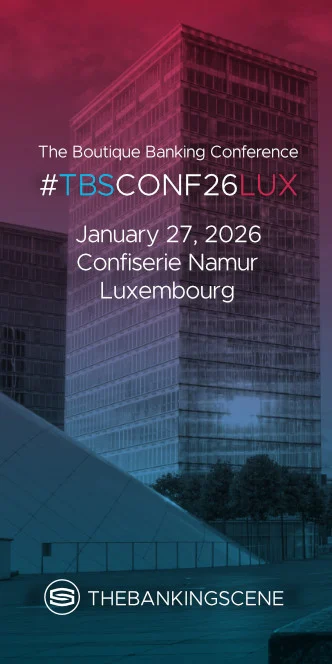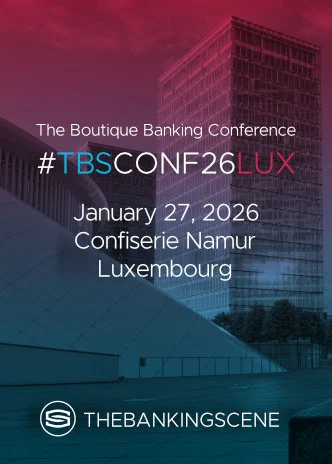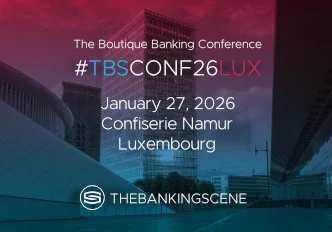
Insights & Opinions
FinTech and Finance Innovation 2025: Insights by Jacques Pütz, CEO LUXHUB
Wed, 27 Oct 2021


Jacques Pütz is the CEO of LUXHUB, a company with origins in PSD2 and open banking. With a background in both banks and FinTech, his contributions were very valuable to our expert panel for the report “Finance and FinTech Innovation 2025 – Hybridization Designs the Future of the Finance Industry”.
Founded in 2018 by 4 major Luxembourg banks, LUXHUB was set up to help banks comply with legal obligations and foster innovation in a mutualized way. No one could expect how valuable these foundations would be two years later.
How banks collaborate…
The pandemic urged banks to speed up their digital transformation, both on the front-end and the back-end.
Overall, the FinTech companies that were most prosperous during 2020 were those that assisted banks in the back-office for more digitalization. LUXHUB is a prime example of how banks have been leaning towards greater collaboration for some time now.
Jacques expects this collaboration between different financial institutions to be more frequent in the future: “The pandemic evidenced that rapid and efficient innovation can be achieved through collaboration - something LUXHUB has been advocating since its very inception. New challenges demand combined efforts.”
The new challenges are endless. New competition, insufficient AML and KYC checks, inadequate operational resiliency measures, new EGS risks… many banks will struggle to keep pace if they maintain an independent approach.
“FinTechs that can provide a mutualized platform, with greater security and zero impact on the competitive advantage of the bank, will be successful. Therefore, platforms that provide these core elements will have a big opportunity to thrive. These types of FinTechs and RegTechs will be needed in the years to come”, explained Jacques. “Without collaborating with these innovative players, banks risk losing their market share to new entrants. Banks cannot survive in the status quo because their legal obligations are increasing, the margins are getting thinner, and the competition is growing”.
… to compete on the things that matter
Once banks have found the right partners to help reduce the burden of obligations, like KYC, AML reporting, and other regulatory requirements, they can start to look ahead. Once the fundamentals are clear, banks can focus again on customer delights and unique selling propositions.
As silos disappear and financial institutions open up, Jacques believes that new trends like embedded finance will completely change the way we think about finance.
“Embedded finance will induce a lot of changes over the next five, 10, 15 years, and this evolutionary environment will remain a constant. Nowadays, it is not enough to develop a product and be at ease for five years; it has become key to reinvent yourself almost permanently. The competitive landscape is evolving, and customers are more willing to accept change. Indeed, they will become used to it. Many banks do not yet understand this”.
FinTech needs to be more Fin and less Tech
A constant change in the market requires an agile mindset that most banks don’t have. FinTech companies can come to the rescue, but they often speak another language. Jacques referred to the cloud as an example. FinTech companies massively adopted cloud technology, but many banks are only starting to migrate part of their IT to cloud services.
Jacques: “FinTech should try to be more fin and less tech. As many FinTechs and/or RegTechs are regulated entities, they need to understand the importance of first ensuring their compliance. This is non-negotiable. Yet FinTechs often find that hard to accept”.
Having the right people on board would help. Having people with a banking background will bring a new dialogue between banks and FinTechs that understand each other’s challenges.
Companies like LUXHUB, or programs like “Powered by EBRC”, are able to bridge the gap that often still exists between banks and FinTechs. In that respect, they bring incredible value to the table.
If you would like to know more, we recommend that you read the white paper “Finance and Fintech Innovation 2025 – Hybridization Designs the Future of the Finance Industry”, which includes insights from Jacques Pütz and many more key stakeholders of the Luxembourg finance industry.
More articles of different contributors to this study can be found here.
At The Banking Scene Conference 2022 Luxembourg on February 22, you get the chance to join the conversation. Together, we investigate how banks should pivot their role in society to continue being trusted partners for their stakeholders in the future.



